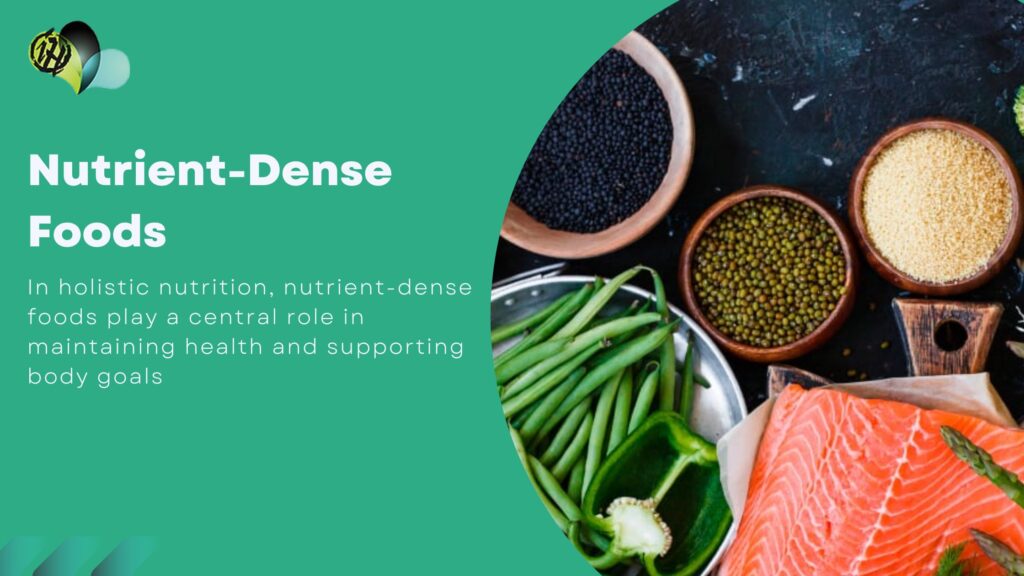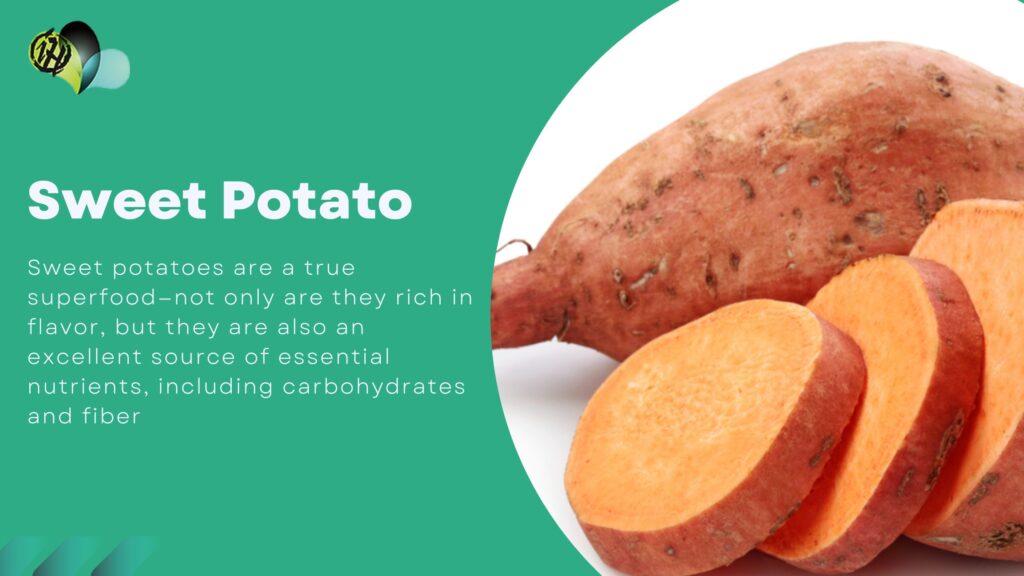Holistic nutrition is a personalized approach to eating, focusing on nutrient-dense foods tailored to your specific body type. Unlike traditional dieting methods that often rely on counting calories or limiting food choices, holistic nutrition takes a comprehensive look at your overall health and well-being. By eating for your body type, you can optimize your energy levels, improve your body composition, and achieve your health goals, whether you’re aiming to lose weight, gain weight, or build lean muscle mass.
In this blog, we’ll delve into the best diet for your body type, including the role of premium holistic nutrition in supporting your journey. We’ll explore how foods like sweet potato, vegetables, whole grains, lean proteins, and healthy fats can work synergistically with your unique metabolic needs. Whether you’re looking to manage insulin resistance, increase muscle mass, or balance your body fat percentage, understanding the connection between nutrition and your body type is key to achieving optimal results.
Understanding Holistic Nutrition: A Personalized Approach to Eating
Holistic nutrition emphasizes the importance of nourishing the body with natural, whole foods that provide the essential nutrients needed to support all bodily systems. Rather than focusing on restrictive eating habits or temporary solutions, holistic nutrition encourages a balanced approach to eating that considers your unique metabolic needs, body composition, and lifestyle.
The primary goal of holistic nutrition is to find a diet that works in harmony with your body and supports your physical and mental well-being. By understanding how different food groups interact with your specific body type, you can design a meal plan that promotes long-term health, energy, and vitality.
For example, the best diet for someone looking to lose weight may differ significantly from the diet of someone trying to gain weight or build muscle mass. Your metabolism, hormone levels, and physical activity all play a role in how your body processes and utilizes nutrients. A holistic approach considers all of these factors and guides you in making food choices that align with your goals.
The Best Diet for Your Body Type: Tailoring Your Nutrition Plan

Everyone’s body is unique, and meal plans should be personalized to suit your specific body type. Whether you’re an endomorph, mesomorph, or ectomorph, the foods you eat should align with your metabolism, activity levels, and health goals.
1. Endomorphs: Focus on Lean Proteins and Healthy Fats
Endomorphs typically have a higher percentage of body fat and may find it harder to lose weight. This body type benefits from a diet rich in lean proteins, vegetables, and healthy fats like avocado, olive oil, and fatty fish. Limiting carbohydrates, especially refined ones, and focusing on nutrient-dense foods can help support weight loss while maintaining muscle mass.
Sweet potato is an excellent choice for endomorphs as it provides complex carbohydrates that release energy slowly, preventing blood sugar spikes. Including nuts and seeds as snacks also helps regulate blood sugar and provides healthy fats to keep you feeling full longer.
2. Mesomorphs: Balanced Approach to Nutrients
Mesomorphs naturally have a more balanced body composition and tend to build muscle more easily. This body type benefits from a diet that includes moderate amounts of lean proteins, vegetables, whole grains, and healthy fats. Since mesomorphs are generally more active, they can afford to eat more carbohydrates than other body types, making whole grains like quinoa, brown rice, and oats great additions to their meal plans.
To enhance muscle mass, mesomorphs should focus on lean proteins like chicken, turkey, tofu, and fish. These proteins support muscle repair and growth, especially when combined with an adequate intake of fats and protein.
3. Ectomorphs: Focus on Nutrient-Dense, Calorie-Rich Foods
Ectomorphs typically have a fast metabolism, which can make it challenging for them to gain weight or build muscle mass. For this body type, the key to success lies in consuming calorie-dense foods that provide the necessary energy for muscle building and weight gain. A diet rich in healthy fats, lean proteins, nuts, and seeds can support their goals.
Ectomorphs should focus on nutrient-dense foods like sweet potatoes, vegetables, and whole grains that provide a good source of complex carbohydrates and fiber. These foods not only offer sustained energy but also support muscle repair and growth, making them essential for anyone looking to enhance muscle mass.
Nutrient-Dense Foods: Building a Balanced Plate for Every Body Type

In holistic nutrition, nutrient-dense foods play a central role in maintaining health and supporting body goals. Regardless of your body type, these foods are packed with vitamins, minerals, and antioxidants that support all bodily functions.
Lean Proteins: Essential for Muscle Repair and Growth
Protein is one of the most important nutrients for our bodies, especially when it comes to building and maintaining muscle mass. Lean proteins are particularly crucial because they provide the necessary building blocks for muscle repair and growth without the added fat found in other protein sources like red meats or processed meats.
When you engage in physical activities or workouts, the tiny fibers in your muscles tear, and it’s during the recovery phase that your muscles rebuild and grow. This process requires a steady supply of lean proteins to facilitate muscle repair. Without adequate protein intake, muscle recovery may be delayed, and muscle growth can be hindered.
Healthy Fats: Important for Hormonal Balance and Energy
Fats often get a bad reputation, but healthy fats are essential for a well-balanced diet and play a crucial role in maintaining overall health. Unlike unhealthy trans fats and saturated fats, healthy fats are vital for supporting various bodily functions, including hormonal balance, energy production, and nutrient absorption.
Our body needs healthy fats to function optimally, particularly in regulating hormones. Hormones are chemical messengers that control numerous processes in our body, including metabolism, reproduction, and stress response. Healthy fats are involved in the production of hormones like estrogen, testosterone, and cortisol, which are all necessary for maintaining balance in the body.
In particular, fats like omega-3 fatty acids, found in foods like fatty fish (salmon, mackerel), chia seeds, and walnuts, support hormonal balance by reducing inflammation in the body, which can disrupt hormone production and lead to conditions like insulin resistance. Omega-3s also promote brain health, reduce stress levels, and support a healthy heart, making them a must-have for those focusing on long-term well-being.
Whole Grains: A Stable Source of Energy
Whole grains are often regarded as one of the most nutritious food groups you can incorporate into your diet, providing a steady source of energy while delivering a variety of essential nutrients. Unlike refined grains, which have been stripped of their nutrients during processing, whole grains retain the bran, germ, and endosperm, providing a rich source of fiber, vitamins, and minerals.
The complex carbohydrates found in whole grains are digested more slowly by the body, offering a sustained release of energy throughout the day. This makes them an ideal choice for maintaining energy levels during periods of physical activity or throughout a busy workday. Instead of experiencing the energy crashes that often follow consuming simple carbohydrates (like white bread or sugary snacks), whole grains provide a slow, consistent source of fuel.
Some excellent examples of whole grains include oats, quinoa, brown rice, barley, farro, and whole wheat. These grains are rich in fiber, which not only helps with digestion but also helps regulate blood sugar levels, ensuring that your energy levels remain stable. The fiber content in whole grains helps to slow the absorption of glucose into the bloodstream, preventing spikes and crashes in blood sugar, which can leave you feeling sluggish and tired.
Nuts and Seeds: Nutrient Powerhouses for All Body Types
When it comes to nutrient-dense foods, few options can rival the power of nuts and seeds. These tiny but mighty foods are packed with essential vitamins, minerals, healthy fats, fiber, and plant-based proteins, making them an excellent addition to any meal plan. Regardless of your body type, nuts and seeds provide a wide range of benefits, from supporting muscle mass and weight loss to improving overall health.
Nuts and seeds come in a variety of forms, each offering unique nutritional profiles. Common examples include almonds, walnuts, cashews, chia seeds, flaxseeds, sunflower seeds, and pumpkin seeds. While each type has its own set of benefits, they all share one thing in common: they are rich in healthy fats, specifically omega-3 fatty acids and monounsaturated fats, which are known to support heart health, reduce inflammation, and improve hormonal balance.
One of the primary advantages of nuts and seeds is their ability to provide a combination of fats and protein, making them perfect for promoting muscle repair and growth. For individuals looking to gain weight, nuts and seeds can be an excellent source of calories and healthy fats. Adding them to your diet can help you achieve a higher caloric intake without relying on unhealthy, processed foods. On the flip side, for those looking to lose weight, the fiber content of nuts and seeds helps increase feelings of fullness, which can reduce overall calorie consumption and prevent overeating.
The high fiber content in nuts and seeds is also beneficial for improving digestion, regulating blood sugar levels, and supporting a healthy gut. The fiber helps stabilize blood glucose levels, which is especially important for those managing insulin resistance. By including nuts and seeds in your meal plans, you can promote a healthy digestive system and reduce the risk of developing chronic conditions like type 2 diabetes and heart disease.
Sweet Potato: A Great Source of Carbohydrates and Fiber

Sweet potatoes are a true superfood—not only are they rich in flavor, but they are also an excellent source of essential nutrients, including carbohydrates and fiber. Whether you’re aiming to gain weight, lose weight, or simply maintain a healthy diet, sweet potatoes offer a range of benefits that make them an essential part of any meal plan. Their versatility, nutritional value, and delicious taste have made them a popular choice among people of all body types.
Carbohydrates: A Stable Source of Energy
When it comes to carbohydrates, sweet potatoes provide a steady and reliable source of energy. Unlike refined carbs, which can lead to rapid spikes and crashes in blood sugar, the complex carbohydrates in sweet potatoes are digested more slowly, offering a sustained release of energy. This helps keep your blood sugar levels stable, preventing those sudden drops that can leave you feeling sluggish and fatigued. The slow digestion of sweet potatoes makes them an excellent choice for sustained energy throughout the day, particularly for individuals with active lifestyles or those needing long-lasting fuel for workouts.
High in Fiber: Supporting Digestive Health
One of the standout benefits of sweet potatoes is their high fiber content. A medium-sized sweet potato contains around 4 grams of fiber, which is essential for maintaining a healthy digestive system. Fiber plays a crucial role in regulating bowel movements, preventing constipation, and promoting overall gut health. The fiber in sweet potatoes also helps to balance blood sugar levels by slowing the absorption of sugar into the bloodstream. This helps prevent the sharp spikes and crashes in blood glucose that can occur after consuming refined carbs.
Nutrient-dense and Rich in Vitamins and Minerals
Sweet potatoes are packed with essential vitamins and minerals, making them a nutrient-dense food that provides a wide array of health benefits. One of the key nutrients in sweet potatoes is beta-carotene, a type of vitamin A that supports healthy vision, a strong immune system, and skin health. The body converts beta-carotene into vitamin A, which is essential for maintaining the health of your skin, eyes, and mucous membranes.
Sweet Potatoes and Different Body Types
Regardless of your body type, sweet potatoes can be easily incorporated into your diet to meet your specific health goals. For individuals looking to gain weight, sweet potatoes provide a calorie-dense option that is rich in nutrients. When paired with healthy fats and lean proteins, sweet potatoes can contribute to a well-balanced, high-calorie diet that supports muscle growth and overall weight gain.
On the other hand, if you’re focused on weight loss, sweet potatoes can be a helpful tool due to their ability to promote feelings of fullness and prevent overeating. Since they are rich in fiber and have a low glycemic index, they are less likely to cause blood sugar spikes, which makes them a great choice for people looking to control hunger and maintain stable energy levels.
Managing Insulin Resistance with Holistic Nutrition
For many people, especially those with insulin resistance, managing blood sugar levels is critical for overall health. A holistic approach to nutrition focuses on eating whole, unprocessed foods that stabilize blood sugar levels, improve metabolism and reduce the risk of chronic diseases.
A diet rich in lean proteins, vegetables, and whole grains can help regulate insulin sensitivity, preventing spikes in blood sugar. Foods like sweet potato and leafy greens are excellent choices for stabilizing blood sugar and preventing insulin resistance from worsening.
Why Choose Integrative Health Inc. for This Service?
At Integrative Health Inc., we specialize in premium holistic nutrition tailored to your specific body type. Our experienced nutritionists work with you to develop personalized meal plans that support your health goals, whether you’re looking to lose weight, build muscle mass, or improve overall health.
By incorporating nutrient-dense foods into your diet, we help you achieve lasting results that align with your body’s needs. We understand the importance of a holistic nutrition approach that supports both your physical and emotional well-being.
Our team is dedicated to helping you understand how to eat for your body type, including the proper balance of lean proteins, whole grains, healthy fats, and vegetables. With our guidance, you can make healthier choices that support your long-term health goals.
Conclusion: Achieving Optimal Health Through Holistic Nutrition
Incorporating holistic nutrition into your lifestyle is a powerful way to optimize your health. By focusing on nutrient-dense foods that are tailored to your specific body type, you can improve your body composition, manage insulin resistance, and achieve your weight and muscle-building goals. Whether you’re looking to lose weight, gain weight, or build muscle mass, the key is to eat in a way that supports your body’s unique needs.
At Integrative Health Inc., we offer personalized guidance and support to help you achieve your health goals. Our premium holistic nutrition services ensure that you receive the proper balance of lean proteins, vegetables, whole grains, and healthy fats to support your journey toward a healthier, more vibrant life.

